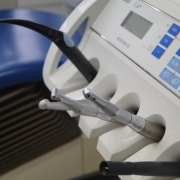How Do I Deal With Dental Emergencies in Thornton, CO
We accept emergency patients at the Colorado Root Canal Specialist in Thornton, Colorado for many reasons. Do you feel like you have a dental emergency? Determine if your dental problem or medical issue requires sudden and emergency care at the dentist.
What Are Dental Emergencies
A dental emergency arises when a patient suffers from a dental problem or facial accident requiring dental care after hours. For example, a patient may be hit with a softball in the mouth on a Saturday when the dentist is usually closed.
They need an emergency dental procedure to save a tooth that has fallen out. If the tooth can be reinserted quickly with emergency services, there is a good chance the person can save the tooth. The root is still viable and can reattach itself to the patient’s gum tissue if reinserted in time by a dentist.
Dental Emergencies and Unscheduled Dental Care
After-hours dental emergencies are not the only reason patients come in with dental emergencies. If a patient has an inflamed tooth root and gums and has not seen the dentist in Thornton, CO, for a few months, they have a dental emergency.
This is the perfect time for you to call our dental clinic any time to let us know you have an emergency and need care. Give us a call and be on your way to our dental office. We will have the tools and resources available by the time you arrive.
Help! I Have a Dental Emergency in Thornton, CO
If you have made it this far, you will most likely have a dental emergency in Thornton, CO, and need to see a dentist. Whether you are struggling with root canal pain or need your wisdom teeth extracted, Colorado Root Canal Specialist is here for emergencies.
Contact us now at 1-303-920-9145 to let us know you have a dental emergency. We will gladly assist you or your loved one with after-hour dental care in an emergency situation.










